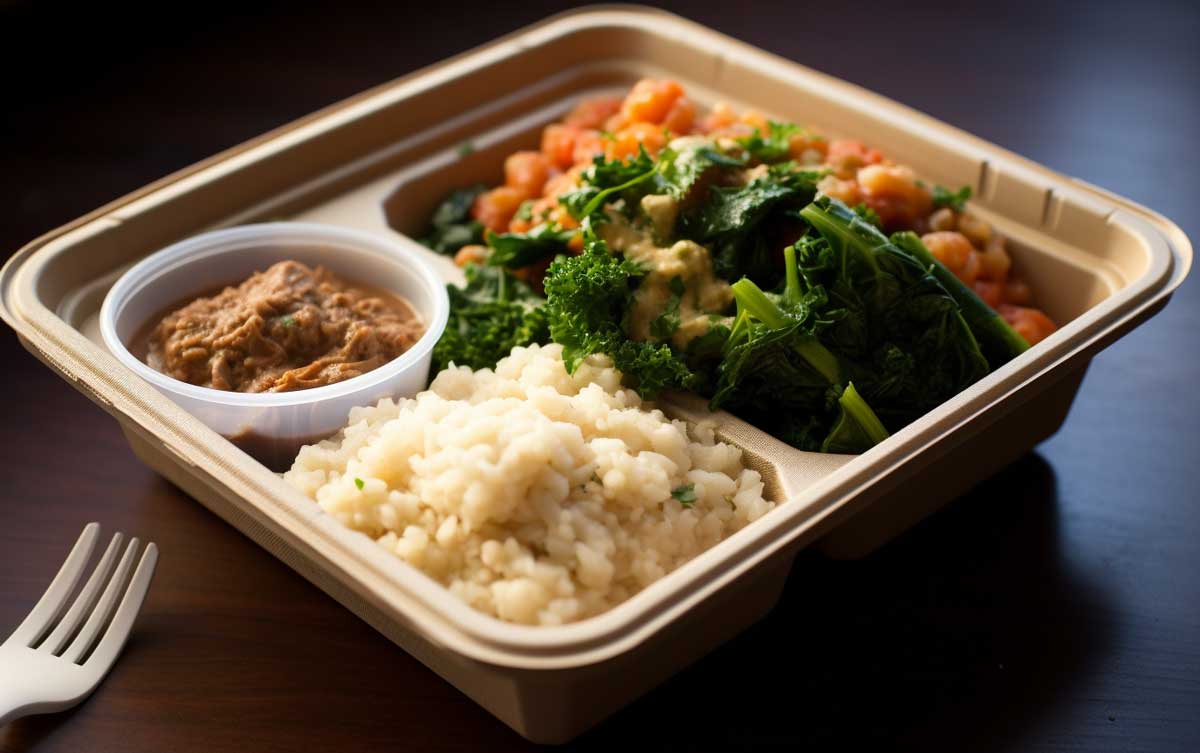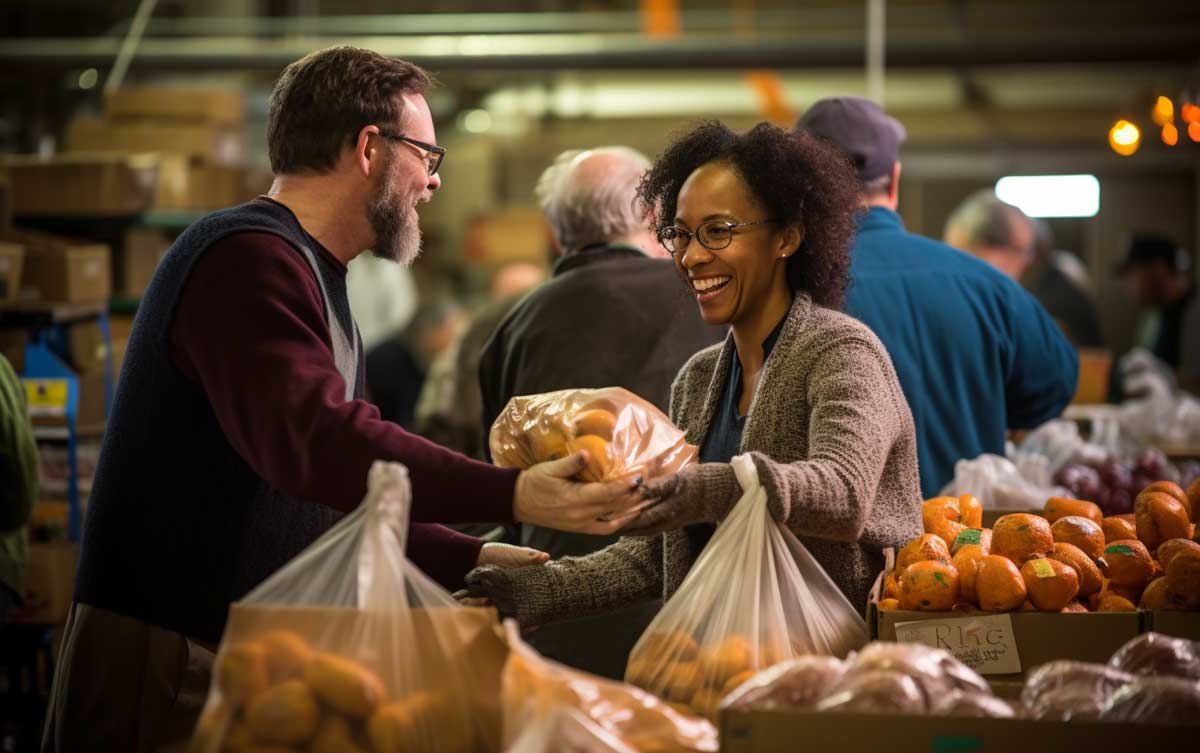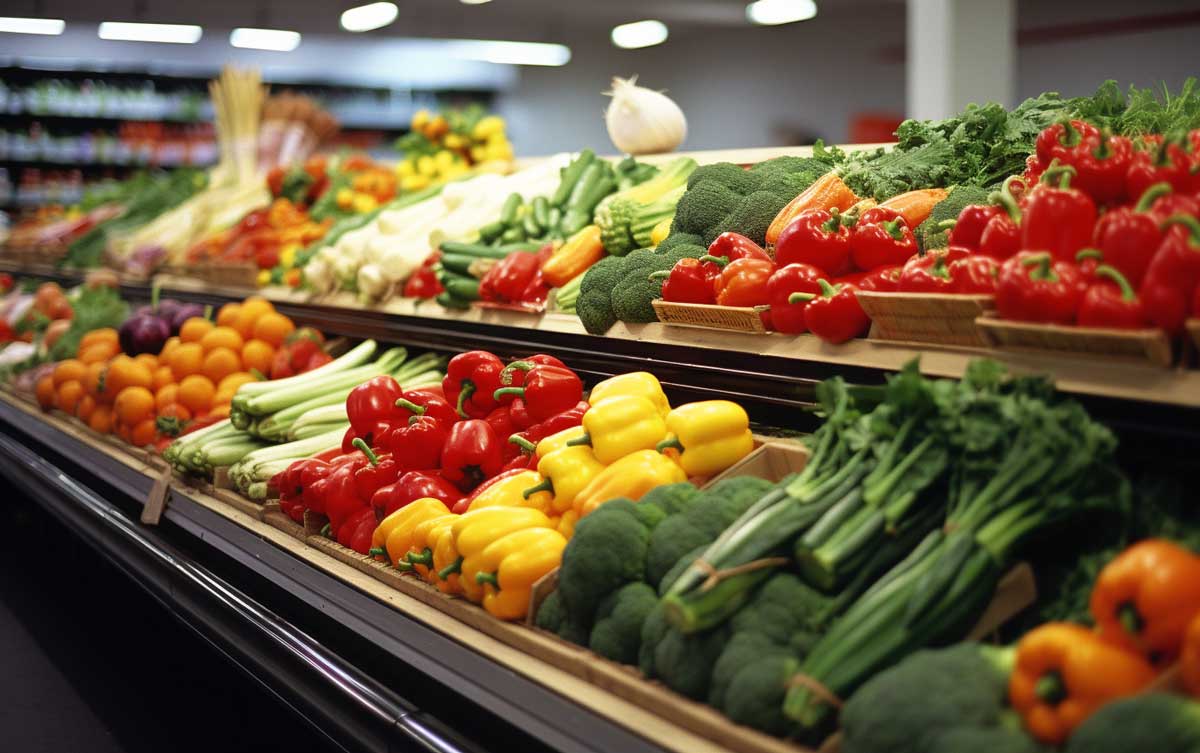In the bustling urban landscape of Milwaukee County, the pressing issue of food insecurity often goes unnoticed amidst the daily hustle and bustle. Yet, for a significant portion of the county's residents, accessing nutritious food remains a daily challenge.
This comprehensive guide delves into the heart of Milwaukee's efforts to combat hunger and malnutrition.
FoodShare Wisconsin is a crucial program in Milwaukee County that provides eligible low-income individuals and families with funds to purchase nutritious food. This program aims to fight against hunger and ensure that everyone has access to healthy meals. FoodShare Wisconsin is funded by the federal government and is managed at the state level by the Department of Health Services. It uses an Electronic Benefit Transfer (EBT) system, enabling beneficiaries to buy food from authorized grocery stores, supermarkets, and farmers' markets.
In Milwaukee County, FoodShare Wisconsin plays a significant role in addressing food insecurity. The program not only helps individuals and families afford food but also stimulates economic activity by increasing demand at local food stores. FoodShare Wisconsin in Milwaukee County continues to evolve, with adjustments made based on the changing needs of the community. Enhancements to the program are focused on increasing access to fresh, healthy food and reducing barriers to participation, especially amongst the most vulnerable populations.
History And Background Of Foodshare
FoodShare Wisconsin, a program dedicated to ensuring that residents of Milwaukee County have access to nutritious food, has a rich history that dates back several decades. Established as a response to the growing concerns of hunger and malnutrition in the region, FoodShare has since become a beacon of hope for many families. Over the years, the program has evolved, adapting to the changing needs of the community and expanding its reach to serve a broader demographic.
Hunger And Poverty In Milwaukee County
Milwaukee County, despite its urban setting and economic opportunities, has not been immune to the challenges of hunger and poverty. Many residents from various walks of life find themselves grappling with food insecurity, a situation exacerbated by rising living costs and stagnant wages.
Statistics On Hunger And Poverty In The County
Recent data reveals that a significant percentage of Milwaukee County's population lives below the poverty line. This economic strain directly correlates with the increasing number of households experiencing food insecurity. Children, in particular, are at a higher risk, with many going to bed hungry or relying on school meals as their primary source of nutrition.
Factors Contributing To Limited Food Access
Several factors contribute to limited food access in Milwaukee County. Urban food deserts, areas where residents have limited access to affordable and nutritious food options, are a significant concern. Additionally, transportation barriers, lack of awareness about available resources, and the stigma associated with seeking assistance further compound the issue.
Impact Of COVID-19 On Households With Limited Resources
The COVID-19 pandemic brought about unprecedented challenges, particularly for households already struggling with limited resources. Job losses, reduced working hours, and the closure of many community resources meant that more families found themselves in dire need. FoodShare Wisconsin, recognizing the gravity of the situation, swiftly implemented measures to provide additional support during these trying times.
FoodShare Wisconsin is a program dedicated to helping residents of Milwaukee County access nutritious food. The program has specific eligibility requirements that applicants must meet to receive benefits.
Income Qualifications For Basic Eligibility
One of the primary determinants for FoodShare eligibility is income. The program has set income limits based on the Federal Poverty Level (FPL). Effective from October 1, 2023, through September 30, 2024, the income limits are as follows:
-
1-Person Household: Gross Income Limit of $2,430 and Reporting Limit of $1,580
-
2-Person Household: Gross Income Limit of $3,288 and Reporting Limit of $2,137
-
3-Person Household: Gross Income Limit of $4,144 and Reporting Limit of $2,694
-
4-Person Household: Gross Income Limit of $5,000 and Reporting Limit of $3,250
These limits are subject to change annually, and it's essential to refer to the official FoodShare Wisconsin website or contact the local agency for the most up-to-date information.
Additional Qualifications Based On Financial Need Or Circumstance
Apart from the income qualifications, there may be additional criteria based on specific financial needs or circumstances. These can include assets, household size, and other factors that might affect an individual's or family's ability to access food. It's crucial to provide accurate and comprehensive information during the application process to ensure that all potential benefits are considered.
Understanding The Application Process For Foodshare Benefits
Applying for FoodShare benefits in Milwaukee County is a straightforward process. Here are the steps involved:
-
Online Application: Applicants can apply online through theACCESS website. After logging in, select "Apply Now."
-
Phone Application: Alternatively, applicants can call their local agency to initiate the application process.
-
In-Person Application: Visiting the local agency office in person is another option. Here, applicants can get assistance and clarification on any queries they might have.
-
Paper Application: For those who prefer traditional methods, a paper application can be filled out and submitted.
After the application is submitted, an interview is mandatory. This interview can be conducted over the phone, or applicants can request an in-person meeting at the agency office. The interview's purpose is to verify the information provided and assess the applicant's eligibility.
For more detailed information and resources related to FoodShare Wisconsin, applicants can refer to the ForwardHealth Enrollment and Benefits Handbook and theUSDA Nondiscrimination Statement for other program-related nondiscrimination information.
Programs Available To Help Residents With Limited Money And Resources
There are several programs in place to assist residents who have limited monetary resources. Government-sponsored programs such as the Supplemental Nutrition Assistance Program (SNAP) provides eligible individuals and families with funds to purchase food. The Low Income Home Energy Assistance Program (LIHEAP) assists with energy costs, offering financial aid to those struggling to keep their homes heated or cooled. Housing assistance is also available through programs like Section 8, which offers vouchers to help with rental costs. Medicaid and the Children's Health Insurance Program (CHIP) provide low-cost or free healthcare to those who qualify. Additionally, there are community and non-profit organizations that offer assistance with everything from clothing to job training. It's important for individuals in need to reach out to their local government or community organizations to learn about the resources available to them.
Emergency Food Assistance Programs
The Emergency Food Assistance Program (TEFAP) is a federal initiative designed to supplement the diets of low-income individuals by offering them emergency food and education at no cost. Administered by the Hunger Task Force, TEFAP ensures the distribution of healthy emergency food free of charge to local pantries. This program is pivotal in providing emergency food support for the most vulnerable families in our communities, simultaneously stabilizing our nation's agricultural economy. The Hunger Task Force firmly believes that every individual has a right to adequate food obtained with dignity. Their mission encompasses not only providing food to those in need today but also promoting social policies that aim for a hunger-free community in the future. Eligibility for TEFAP is based on income and household size, with specific income guidelines available for reference.
Fondy Food Center Program
The Fondy Food Center is a beacon of hope in Milwaukee, striving to increase access to healthy, local food and economic opportunities across the greater Milwaukee region. Their projects collectively aim to enhance fresh, local food access for Milwaukee-area residents while simultaneously supporting small farmers. Fondy's advocacy for a healthier and more economically prosperous food system is evident in their efforts to instigate policy, systems, and environmental changes across the food landscape. In 2023, the Fondy farm project is set to support 25 small family farmers, cultivating a patchwork of small farms on 40 acres of land at the Mequon Nature Preserve.
Baby's Bounty Program
Baby's Bounty is a commendable initiative that supports and empowers families at risk by providing them with essential tools and education to ensure a promising start for every baby. Their program is meticulously designed to assist infants up to six months of age. Once a baby turns seven months, they are no longer eligible for the services. The program has stringent requirements, and a client can only avail of their services once. When referring a pregnant client, she must be within 45 days of delivery. The program's income eligibility is aligned with 130% of the 2020 U.S. Federal Poverty Guidelines, ensuring that the most needy benefit from their services.
The Hunger Task Force's Grocery Store Program
The Hunger Task Force's Mobile Market is an innovative solution to address food deserts in Milwaukee County. Termed as a "grocery store on wheels," this mobile market travels throughout Milwaukee County, targeting communities with limited or no access to fresh foods. With the support of a federal grant, the Hunger Task Force offers significant discounts on all groceries purchased at the Mobile Market.
In a recent update, this discount was generously doubled from 25% to 50% on all items, making fresh and healthy food even more accessible to those in need. This initiative has garnered national attention, with the Hunger Task Force and its Mobile Market partnership with Piggly Wiggly being featured on NBC Nightly News with Lester Holt. The program stands as a testament to the community's commitment to providing fresh food options to areas with limited access to affordable and nutritious foods.
These programs, with their distinct objectives and methods, collectively aim to alleviate hunger and ensure that every resident of Milwaukee County has access to nutritious food, irrespective of their financial situation. Their efforts are a testament to the community's commitment to leaving no one behind and ensuring a healthier future for all.
Frequently Asked Questions
We have addressed some of the most commonly asked queries to provide you with a better understanding of Foodshare Milwaukee.
What is the primary objective of the FoodShare Wisconsin program in Milwaukee County?
The FoodShare Wisconsin program in Milwaukee County is dedicated to alleviating hunger and promoting better nutrition among its residents. By providing financial assistance based on income and household size, the program ensures that individuals and families can access and afford nutritious food, thereby enhancing their overall well-being and health.
How does the Emergency Food Assistance Program (TEFAP) operate?
TEFAP operates as a federal initiative overseen by the Hunger Task Force. It sources and distributes emergency food supplies to local pantries across Milwaukee County. By collaborating with local agencies and leveraging federal resources, TEFAP ensures that low-income individuals receive timely, nutritious food assistance during times of need.
What is the mission of the Fondy Food Center Program?
The Fondy Food Center Program is committed to transforming Milwaukee's food system. By supporting small-scale local farmers and establishing farmers' markets, the program aims to bridge the gap between producers and consumers. Their mission encompasses both increasing access to fresh, local produce and fostering economic opportunities for local agricultural entrepreneurs.
Until what age can infants receive assistance from the Baby's Bounty Program?
The Baby's Bounty Program is designed to assist infants during their crucial early months. Infants up to the age of six months are eligible for the program's services. However, once an infant reaches seven months, they transition out of the program's eligibility criteria.
How does the Hunger Task Force's Mobile Market address the issue of food deserts?
The Hunger Task Force's Mobile Market is an innovative approach to combat food deserts in Milwaukee County. This mobile grocery store travels to areas with limited access to fresh food, offering residents a chance to purchase nutritious items at discounted rates. By bringing the grocery store directly to these communities, the program ensures that geographical barriers do not hinder access to healthy food.
Are there any income restrictions to avail of the services provided by these programs?
Yes, many of the programs have specific income-based eligibility criteria to ensure that assistance reaches the most vulnerable populations. For instance, the Baby's Bounty Program aligns its eligibility with 130% of the 2020 U.S. Federal Poverty Guidelines. It's crucial for potential beneficiaries to consult each program's official documentation or contact the respective agencies to understand the detailed income restrictions and qualifications.
In the face of rising challenges, Milwaukee County stands resilient, with programs and initiatives dedicated to ensuring that no resident goes hungry. From the extensive efforts of FoodShare Wisconsin to the innovative solutions like the Mobile Market, the community's commitment to addressing hunger and ensuring access to nutritious food is unwavering. These programs not only provide immediate relief but also pave the way for a sustainable and hunger-free future for Milwaukee County. As we navigate the complexities of our modern world, it's heartening to witness such collective efforts that prioritize the well-being of every individual, ensuring that they have the resources and support they need to thrive.
Discover more assistance programs by reading our in-depth guide to free food for seniors For more information, visit Gov Relations and explore our resources.







